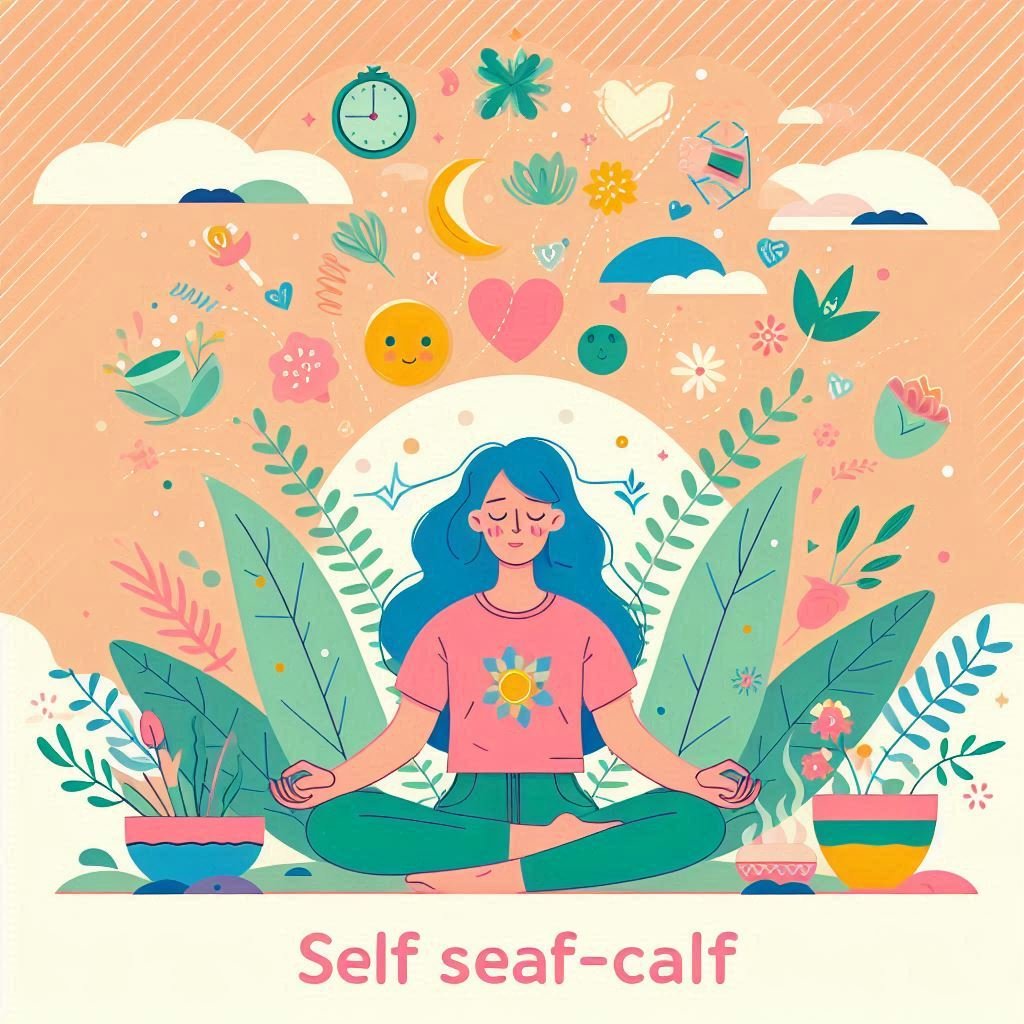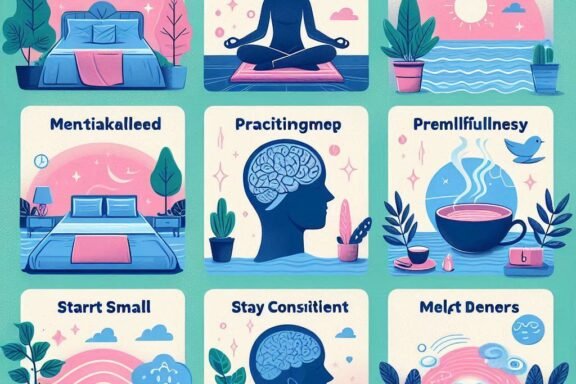Introduction:
In today’s busy world, self-care often falls to the bottom of our to-do lists. However, prioritizing self-care is essential for maintaining good mental health. Self-care isn’t about indulgence—it’s about building habits that support emotional resilience, mental clarity, and a balanced lifestyle. In this article, we’ll explore why self-care matters for mental health and offer practical steps to integrate it into your routine.
1. What is Self-Care?
Self-care means taking time to care for yourself to maintain good physical, mental, and emotional health. It encompasses activities that make you feel relaxed, recharged, and connected to yourself, whether it’s through exercise, a hobby, or simply taking a break. Importantly, self-care is not selfish; it’s a necessary part of maintaining mental wellness and preventing burnout.
Key Types of Self-Care:
- Physical (e.g., exercise, healthy eating, sleep)
- Emotional (e.g., practicing gratitude, managing stress)
- Social (e.g., connecting with friends, seeking support)
- Mental (e.g., learning new skills, setting personal goals)
2. Why Self-Care is Crucial for Mental Health
Self-care is more than a wellness trend; it has proven benefits for mental health. Regular self-care practices can reduce anxiety, depression, and stress by fostering positive feelings, boosting self-esteem, and providing time to relax and recharge.
Mental Health Benefits of Self-Care:
- Reduces Stress: Activities like meditation, exercise, and hobbies can reduce cortisol levels, helping you manage stress.
- Boosts Resilience: Taking care of yourself helps you better cope with life’s challenges by creating a strong mental foundation.
- Improves Mood: Self-care releases dopamine and serotonin, the brain’s “feel-good” chemicals, helping to improve overall mood and outlook.
- Enhances Focus: Giving yourself time to relax allows your brain to recharge, enhancing focus, productivity, and decision-making abilities.
3. Building a Personalized Self-Care Routine
To get the most from self-care, it’s essential to create a personalized routine that aligns with your lifestyle and needs. Self-care isn’t one-size-fits-all, so find activities that resonate with you and make them part of your daily life.
Steps to Building a Self-Care Routine:
- Identify Your Needs: Assess your physical, emotional, and mental needs. Ask yourself, “What would make me feel more balanced and less stressed?”
- Start Small: Begin with simple activities like a five-minute meditation or a short walk.
- Set Boundaries: Protect your time by learning to say “no” when needed and setting boundaries to ensure you have time for self-care.
- Be Consistent: Commit to regular self-care, even if it’s just 10-15 minutes a day. Consistency is key to experiencing the benefits.

4. Practical Self-Care Ideas for Mental Health
If you’re looking for effective self-care ideas, here are some simple yet powerful ways to nurture your mental health.
A. Physical Self-Care
Physical activity plays a major role in mental health. Exercise releases endorphins, boosts mood, and helps manage anxiety. Try adding one of these activities to your weekly routine:
- Take a Daily Walk: Even a 10-minute walk outdoors can boost mood and clarity.
- Practice Yoga or Stretching: Yoga combines physical activity with mindfulness, making it great for reducing stress.
- Sleep Well: Aim for 7-8 hours of quality sleep each night to improve focus and mental resilience.
B. Emotional Self-Care
Emotional self-care helps you manage feelings and cultivate positive emotions. Here’s how to make it a part of your routine:
- Practice Gratitude: Start a gratitude journal or list three things you’re grateful for each day.
- Set Time for Reflection: Take 5-10 minutes to reflect on your day and acknowledge your feelings.
- Allow Yourself to Feel: It’s okay to feel a full range of emotions. Practice self-compassion and give yourself permission to feel without judgment.
C. Social Self-Care
Strong social connections support mental health by providing companionship, support, and a sense of belonging. Strengthen your connections by:
- Spending Time with Loved Ones: Schedule regular time with friends or family, even if it’s virtual.
- Join a Group or Club: Find a group activity that interests you, such as a book club or exercise class.
- Reach Out for Support: Don’t hesitate to talk to someone when you need help—whether it’s a friend, family member, or counselor.
D. Mental Self-Care
Mental self-care keeps your mind engaged and helps you stay positive. Try incorporating these activities into your routine:
- Read or Learn Something New: Stimulate your mind by learning a new skill or reading something that interests you.
- Limit Screen Time: Set boundaries for screen time, especially on social media, which can contribute to stress and anxiety.
- Practice Mindfulness: Try mindfulness meditation to help stay present and reduce negative thought patterns.
5. Overcoming Common Self-Care Challenges
Despite the benefits, many people struggle to maintain a self-care routine. Here are some common challenges and solutions:
- “I Don’t Have Time”: Self-care doesn’t have to take hours. Start with small activities you can fit into your day, like a few minutes of deep breathing.
- “I Feel Guilty Taking Time for Myself”: Remember, self-care is essential for your mental health. Taking care of yourself helps you show up better for others.
- “I Don’t Know Where to Start”: Begin by trying a few different activities to see what feels best. Listen to your body and mind and follow what feels most nourishing.
6. Long-Term Benefits of Consistent Self-Care
When practiced regularly, self-care has lasting effects on mental health and quality of life. Over time, you may notice:
- Greater Emotional Resilience: Self-care can make you more adaptable to life’s challenges, helping you stay calm under pressure.
- Increased Self-Esteem: Taking time for yourself fosters self-respect and confidence, which boosts self-esteem.
- Better Relationships: Prioritizing self-care enhances your ability to connect with others and strengthens relationships.
- Sustainable Mental Wellness: Consistent self-care contributes to long-term mental health by reducing stress, anxiety, and burnout.
Conclusion:
Self-care is a powerful way to maintain mental well-being, and it doesn’t have to be complicated. Start with small, meaningful steps to prioritize your mental health, knowing that taking care of yourself is essential for a balanced and fulfilling life. As you explore and commit to self-care, you’ll find that you feel more grounded, resilient, and ready to face whatever comes your way.
FAQs
1. How often should I practice self-care?
It’s best to incorporate self-care into your daily routine, even if just for a few minutes. Consistency is more important than the duration.
2. What if I struggle with guilt when practicing self-care?
Remember that self-care benefits both you and those around you. When you feel good, you’re better equipped to support others.
3. Can self-care replace professional mental health treatment?
Self-care is an important supplement to mental health care, but it’s not a substitute. For serious concerns, seek help from a mental health professional.
4. How do I know which self-care activities are best for me?
Try various activities to see what feels most restorative. Listen to your body and mind, and let your feelings guide you.
5. Is self-care only for mental health?
No, self-care benefits both mental and physical health. It’s a holistic approach that enhances overall well-being.
4








No Comments